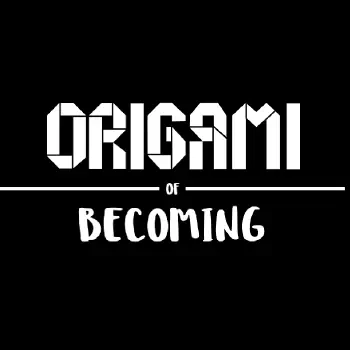Emotions are an integral part of our human experience. It’s normal, natural and healthy to experience them on a day-to-day basis. Emotions can be a response to what we see, hear, feel, or think. There are many factors that influence our emotions and feelings such as our current moods, thoughts, memories and meaning that we make of events around us.
What are some examples of emotions? When do we feel them?
The most beautiful thing about emotions can also be the most frustrating thing about them: There are so many variations of feelings that one can experience!
Let’s look at some examples of emotions. Anger is an intense feeling of displeasure and hostility that’s often triggered by an injustice or insult. Joy is the emotion of being happy and pleased about something. Sadness is an emotion that can be felt in response to pain, loss, or disappointment. Jealousy can be a feeling of insecurity and fear. Fear is an unpleasant emotion caused by anticipation or awareness of danger. There are multiple other emotions that human beings are capable of experiencing. An important part of taking care of our mental health is to offer ourselves some space, time and gentleness to feel these feelings.
What can I do if I’m Unsure of my Emotions or How I’m Feeling?
Many people can find it difficult to identify their feelings and emotions. This is absolutely normal, because most of us have not been taught the vocabulary we need to identify and express our feelings. If you are unsure of how you are feeling, you are certainly not alone!
Let’s understand why we may not be able to access our feelings readily. Have you noticed how we talk to ourselves about our feelings? Before sitting with our feelings or trying to identify them, we often rush to asking ourselves “Why am I feeling this way?!”. This could be because we are taught to view emotions, especially difficult and uncomfortable ones, as bad or weak. We are told to stop feeling them, cheer up instantly, and move ahead! As a result, when we question our feelings before actually feeling them, this could bring judgment with it and possibly place blame, responsibility and shame inside us. This can create resistance and a barrier to feeling our feels!
Instead if we were to gently ask ourselves, “What is my feeling a response to? What is making my body feel this way?”, it could help to broaden our perspective, help us view our feelings non-judgementally and with curiosity, and expand our view of all the things that are impacting our mental health. The following sections will provide you with more tips on how to feel and process your feelings!
How Does Feeling My Feelings Help with Mental Health?
Processing your feelings is a great way to take care of your mental health. It can help you to get things off your chest, de-stress, and decompress. It can also make you feel better in the moment. From a long term perspective, it can help you build more awareness of your reactions, learn ways to better cope with your feelings, and make preferred choices to honour your feelings.
Some people find it difficult to express their feelings, but there are many different ways that you can do this. You could journal or write in a diary, express feelings through painting, a song, or a poem, have a conversation with someone trusted and close to you, or even write an email to an anonymous recipient.
Let’s understand more about how we process our feelings and what that can look like.
How Do We Process Our Feelings?
A. Identify What You’re Feeling:
It’s difficult to identify what you’re feeling when you’re in the midst of a situation. However, there are some techniques that can help. The first step is to identify the emotion. This can be done by describing the physical sensations that you are feeling, or by identifying the emotion from an emotional chart that contains feeling words (e.g., “I feel angry” or “I feel disappointed”). Labelling our emotions with words or descriptors is a great first step to discovering more about them.
The “Feeling Wheel” resource might be a helpful way to start as well.B. Validate Your Feelings:
We are often told to validate our feelings, but what does that really mean? Validation is the process of accepting and acknowledging our feelings. It is not about agreeing with them or making them feel better. It’s about listening and understanding our emotions.
When we validate our feelings, we are more likely to be compassionate towards ourselves because we understand why we feel the way that we do. One way to do this is by using “I” statements like “I feel ___ (insert emotion), it’s okay that I feel (insert emotion), I am allowed to feel ___, It is safe to feel _____”C. Observe Thoughts:
To be able to observe thoughts, we need to be able to identify them. This is harder than it sounds because our thoughts are often disguised as feelings. Thoughts are essentially statements that we tell ourselves that may accompany a feeling, or that may arise without being related to any feeling.
Observing thoughts can also help you make sense of your emotions and find out what might be causing them, which can help you deal with them better. The next time you feel an emotion, try to observe your thoughts as well. What are you telling yourself? What’s the story that comes up for you about yourself or the situation? How are you talking to yourself?D. Express the True Emotion
Expressing our emotions involves finding a way to channel our feelings into concrete needs that we can meet for ourselves. For example, if you feel anxious, you may need time alone or a change in scenery to ground yourself. If you feel angry, you may need to confront the person that made you mad in order for the anger to subside. If you feel sad, you may want to confide in someone who can listen and provide comfort.
It is important to express our true emotions in a healthy way. Expressing emotions is not always easy and it takes time to learn how to do it. However, we can use these ways of expression to help us:
Talking about your feelings with a compassionate close one- Journalling
- Dance or move your body
- Listen to music you enjoyed as a child
- Cry
- Stretch
- Create art
- Go for a walk
- Take a long shower or bath
- Talk to the emotion
- Spend time with your pet or plant
..and many other ways that may help you express and process!
Some Reminders About Feelings
Feelings have a quality of visiting and passing - they are not permanent. Our feelings do not exist in a vacuum away from our surroundings and what’s happening to us.
It’s important to remind ourselves that our feelings are not a sign of weakness and there are no “good” or “bad” emotions. Feelings are like messengers - they are trying to communicate something really important to us about ourselves and our surroundings. Our feelings are entry points to discover what we value/care about and turning that into helpful action.
It also goes without saying: When processing your feelings or emotions starts to feel overwhelming, it could be helpful to reach out to a mental health therapist, support group or helpline to help you process them.
Don’t worry! Our platform curate’s them for you, from across India. Click here to get started. 🙂


















